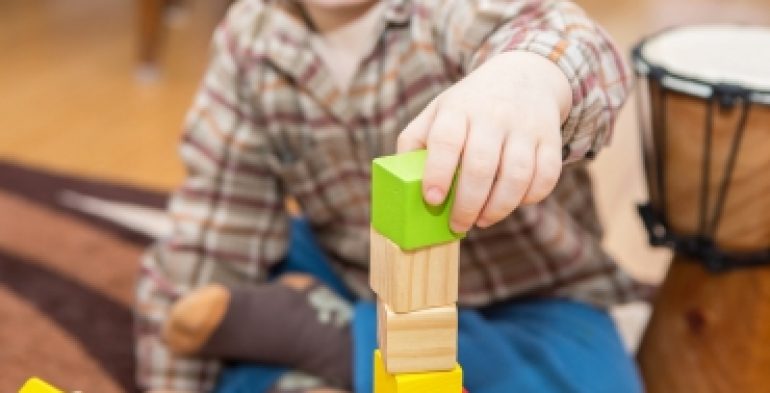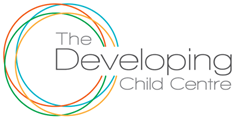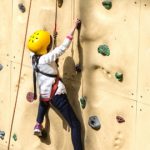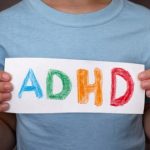
Too often in today’s whirlwind pace parents are left feeling they have little impact on the language and learning success of their children. We loved this interview with Lois Heymann by Edwina Viel. It explains how parents, by choosing the right toys and through a little interaction, can easily turn that feeling of powerlessness into empowerment. By simply spending 20 to 30 minutes a day with each child in guided play can make a huge positive difference in the child’s language and learning development.
I was most fortunate to meet Lois Kam Heymann on her recent trip to Dubai. Lois was working with The Developing Child Centre based in Dubai, giving a series of lectures at The Change Initiative Store, and kindly took time out for this interview. Lois, I realised during our interview, was the person I had been praying to meet who would inspire me on new ways and methods to teach my children.
Background
Lois, based in New York City, came to Dubai to work with The Developing Child Centre, a centre that works with children with learning difficulties that could potentially stop them reaching their full potential. Lois, a speech and language pathologist, with over 30 years’ experience works with children with listening challenges such as various degrees of deafness and is one of the world’s leading authorities on Auditory Processing Disorders.
A few years back, Rosie O’Donnell, the Hollywood actress, sought Lois help for her adopted son, Blake who was 7 years old at the time. Rosie was so impressed by Blake’s progress that she decided to work with Lois to launch a book to help other mothers who didn’t have access to Lois herself. The Sound of Hope was a ground breaking book and Lois appeared on Good Morning America, Rachel Ray and the New York Times’ Health Section.
Over time, it was discovered that Lois’ therapies also helped children who did not have Auditory Processing Disorders. Some of her therapies include working with various toys and tools that help children increase their vocabulary and to help children with their creativity.
What sort of specific activities?
Some of the activities, Lois describes, can be as simple as finger painting, using homemade playdough, cutting up old magazine pages into puzzles, playing with stickers. These play exercises allow the children to be creative, but a significant difference is also reliant on how the parents interact with their children to help their development.
Learning through play?
I explained to Lois that Dubai was so multicultural, and people, like me, come from cultures that don’t necessarily value learning through play. I did not have that upbringing myself coming from a Chinese background, living in Singapore until aged 10 before being sent to a UK boarding school. I lived in a ‘tiger mum’ environment where we learnt everything through traditional drill methods. I still believe there is some value in the ‘tiger-mum’ system – the evidence is vast. Just look at the students from China and India.
But now, as a parent myself I also do see the importance of play learning – it is less stressful on the children and the results are the same. It may not always come naturally to me to teach my children through play or to use the right words though but Lois can show us how. For parents from Western cultures, it would be like teaching most of these parents to suck eggs. For other cultures, Lois teachings are hugely beneficial especially for those who believe that the more expensive the toy the better regardless of the learning and developmental value of the toy.
Which toys to choose for learning and development?
Lois prefers plainer toys that allow the children to use their imagination. For example, building blocks are extremely valuable in her therapy sessions as a child could imagine one block to be a mobile telephone or an 8 month old could learn to words ‘up’ and ‘down’ by building the blocks up and down. It is then through the right interaction with the child’s parents that the child can learn to expand their vocabulary or skills.
Where can one find and understand which toys are the correct ones?
Lois, due to popular demand, launched a website which recommends and suggest toys that aim to support the teaching and learning process for various age groups that help with creative play, memory, language, sensory and much more. With the toys, parents would learn to interact with their children by leading the play. Lois adds that it is not always correct to ask the children questions during the play learning but to suggest or prompt ideas that would lead to them to experience different sensory or use of vocabulary.
Time with your children
Lois explained that parents mistakenly believe that they need to play with their children for hours and hours. This type of interactive play could be just for 5 to 10 minutes a day, and this quality time with your children can significantly increase their vocabulary. A 2 – 3 year-old might just require 5 minutes whilst a 4 – 5 year-old could concentrate for 10 minutes depending on the activity.
More importantly, these activities should be aged appropriate and be at the right interest level. After all, if the children pick their activity they will play for much longer.
Boy vs Girls
In Lois’ experience there is little difference in the requirements of boys and girls at this age. The different sexes may show their frustrations differently. For example, girls may withdraw more whilst boys act out their frustrations more.
Parents
One thing Lois has understood from meeting decades of parents is that all parents around the world are the same. They are determined to do the best for their children.
IPAD and Technology
Lois recognizes that technology is here to stay but children should be monitored to use the right apps on the IPAD, for example and to use this technology in moderation. She has also created apps to help children like Category Carousel and One Step Two Step.
My time with Lois was really amazing – she gave me the confidence that I was on the right track with my children. That I didn’t need to feel guilty for not spending hours playing or entertaining the kids, and most of all, I can educate my children.
TDCC – The Developing Child Center – Dubai









